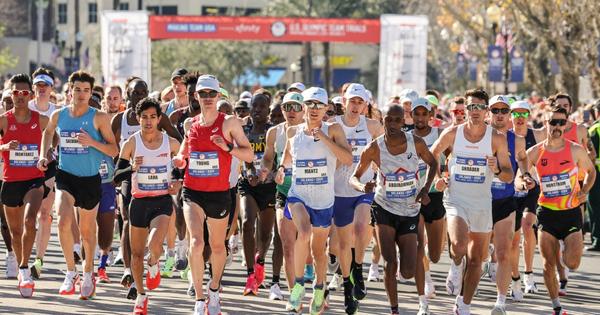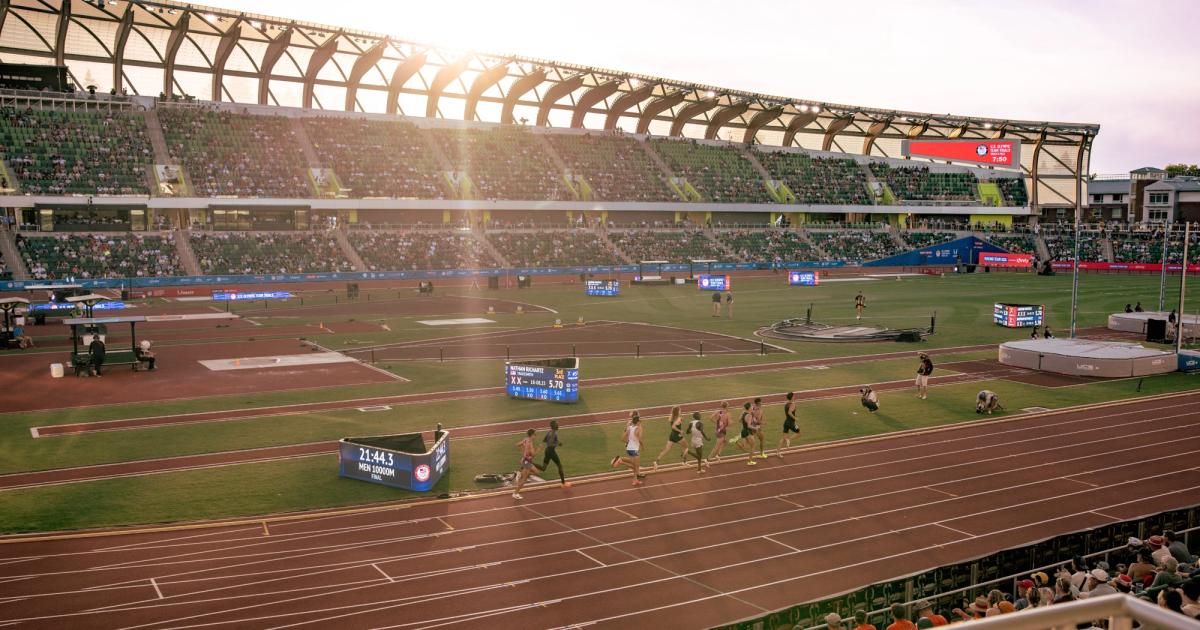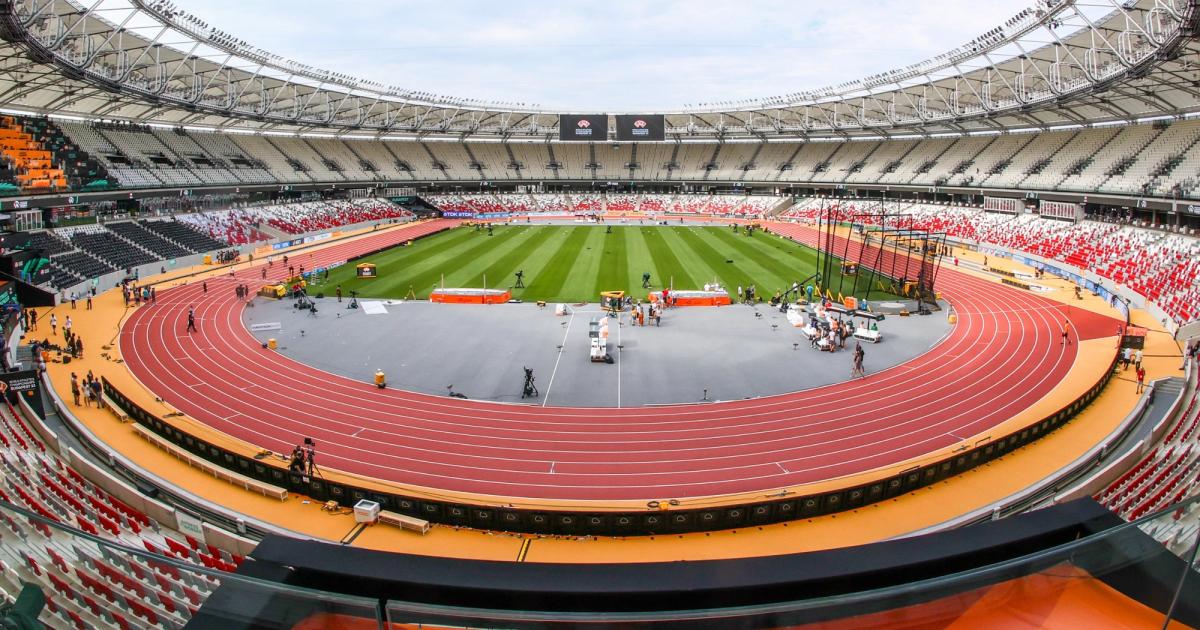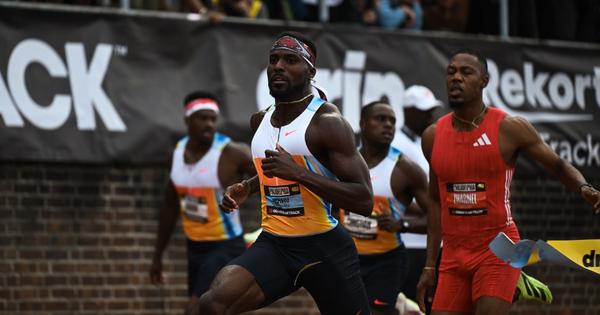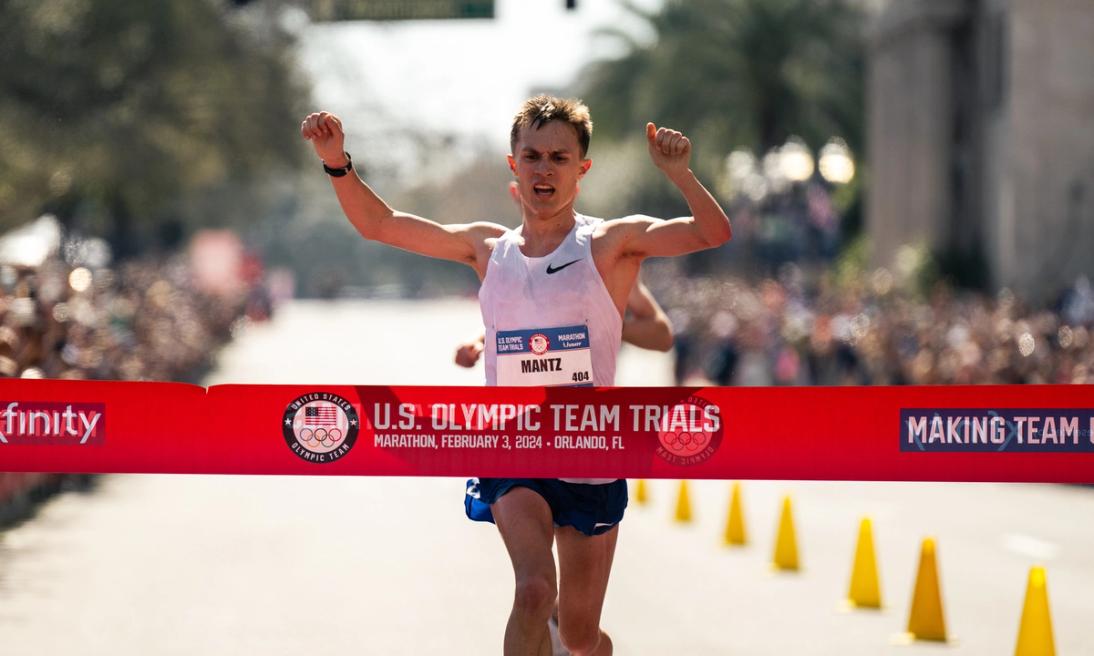By Chris Chavez
June 2, 2025
USA Track and Field has announced the qualifying standards for the 2028 U.S. Olympic Marathon Trials.
“We’re thrilled to see the work of the LDR committees come to fruition as we introduce the qualifying procedures for the 2028 Trials,” USATF Director of Long Distance Running Programs and 2008 Olympian Amy Begley said in a statement. “The standards and qualifying window were formed with direct feedback from athletes, coaches, and agents at the front of mind with the goal of creating an environment that prioritizes athletes’ performance needs. We’ve had such a surge of young, record-breaking talent on the roads in recent years and we can’t wait to see what’s in store for 2028.”
Here’s what you need to know:
– USATF will return to “A” and “B” standards for 2028. The “A” standard will be determined at a later date in coordination with the LOC. Athletes with the “A” standard will get travel funding to the Olympic Trials. Athletes with the “B” standard will be guaranteed entry to the Olympic Trials.
– For the “B” standard: Women who want to race will have to run 2:37:00 or faster. This is the same as the 2024 U.S. Olympic Marathon Trials qualifying standard. Women will also be able to qualify if they run 1:12:00 for the half marathon or faster, which is the same as the 2024 qualifier.
– For the “B” standard: Men who want to race will have to run 2:16:00 or faster. This is two minutes faster than the 2024 U.S. Olympic Marathon Trials qualifying standard. Men can also enter if they run 1:03:00 or faster for the half marathon, which is the same as the 2024 qualifier. Going off USATF’s 2024 qualifiers list, 139 of the 220 qualified men ran faster than 2:16:00.
– USATF has noted that all qualifying times will be taken from an athlete's chip time rather than gun time.
– The qualifying window for marathon times will open on September 1, 2025. It will remain open until a later date to be determined, but historically it is 45 to 60 days before the Olympic Trials. It will be set after the Trials location and date are determined.
– The qualifying window for half marathon times will open on Jan. 1st, 2027.
– Athletes can also secure the A standard by being a member of the previous three U.S. Olympic Marathon teams in 2016, 2021, and 2024. Recently, Abdi Abdirahman competed at the 2024 U.S. Olympic Marathon Trials because he was a member of the Tokyo Olympic team.
The following athletes are pre-qualified for the 2028 Trials as members of the U.S. Olympic marathon team since 2016:
Women:
- Shalane Flanagan (last competed professionally in 2018)
- Des Linden (just announced the 2025 Boston Marathon would be her last professional marathon)
- Amy Cragg (last competed professionally in 2020)
- Aliphine Tuliamuk (currently recovering from hamstring surgery)
- Molly Seidel (2021 Olympic bronze medalist hasn’t raced a marathon since the 2023 Chicago Marathon)
- Sally Kipyego (has not competed professionally since 2021)
- Fiona O’Keeffe
- Emily Sisson
- Dakotah Lindwurm
Men:
- Galen Rupp (2016 Olympic bronze medalist hasn’t raced a marathon since his 16th place finish at the 2024 U.S. Olympic Marathon Trials)
- Meb Keflezighi (2004 Olympic silver medalist last competed professionally in 2017)
- Jared Ward (missed the 2024 U.S. Olympic Marathon Trials and ran 2:19:36 at the 2024 New York City Marathon)
- Jake Riley (last competed professionally at the 2024 New York City Marathon)
- Abdi Abdirahman (last competed at the 2024 Boilermaker 15K in July 2024, DNF at the 2024 U.S. Olympic Marathon Trials)
- Conner Mantz
- Clayton Young
- Leonard Korir
– The “A” standard will also be offered to the 2025, 2026, and 2027 U.S. Marathon champions and 2025 and 2027 World Championships marathon team.
– The following performances will also count for “B” standard qualifying purposes: the 2026 and 2027 U.S. Running Circuit champions; those who achieve a top-10 finish at the 2025 and 2026 U.S. Marathon Championships; and those who achieve a top 10 finish at any platinum-label marathons inside the OTQ window.
– Rule 8 will also remain in effect and athletes who meet the following criteria can race the Trials: Those who have earned an individual medal in an Olympic Games or in a World Athletics World Championship, those who have won an individual U.S. Marathon Championship, and those who have earned a USA Olympic team selection.
– The 2024 U.S. Olympic Marathon Trials in Orlando had 117 women finishers and 150 male finishers. 50 men and 33 women did not finish the race in the hot, humid conditions. When the 2024 standard dropped from 2:45 to 2:37, the number of female qualifiers decreased from 512 in 2020 to 173 in 2024. On the men’s side, when the 2024 standard dropped from 2:19 to 2:18, the number of qualifiers decreased from 260 to 227.
– The top three women’s finishers Fiona O’Keeffe, Emily Sisson, and Dakotah Lindwurm qualified for the Paris Olympic team. On the men’s side, Conner Mantz and Clayton Young went 1-2 with Leonard Korir eventually earning the final spot for Paris based off his third-place finish and World Athletics ranking.
– World Athletics has yet to announce the Olympic standards for the Los Angeles Olympics. The standards for the 2024 Paris Olympics were not revealed until December 20th, 2022. The 2024 Olympic marathon standards were 2:08:10 for the men and 2:26:50 for the women as part of World Athletics’s goal of filling 50% of the field via the standard and 50% determined by their World Ranking. Athletes could also qualify for the Olympics by finishing Top 5 in a Platinum Label Marathon.
– In 2020, World Athletics designated the U.S. Olympic Marathon Trials as a gold-label race, which made the top 10 finishers eligible for the Tokyo Olympics and made it clear that the top three finishers would be headed to the Summer Games. That was not the case in 2024, which led to Leonard Korir waiting until June to find out whether he would be competing in Paris.
___________________
Keep up with all things track and field by following us across Instagram, X, Bluesky, Threads, and YouTube. Catch the latest episodes of the CITIUS MAG Podcast on Spotify and Apple Podcasts. For more, subscribe to The Lap Count and CITIUS MAG Newsletter for the top running news delivered straight to your inbox.

Chris Chavez
Chris Chavez launched CITIUS MAG in 2016 as a passion project while working full-time for Sports Illustrated. He covered the 2016 Olympics in Rio de Janeiro and grew his humble blog into a multi-pronged media company. He completed all six World Marathon Majors and on Feb. 15th, 2025 finally broke five minutes for the mile.
